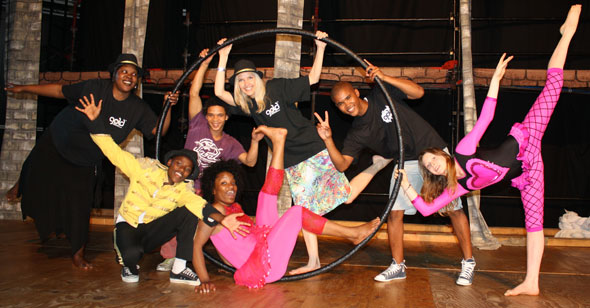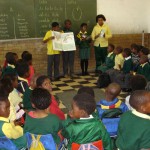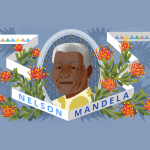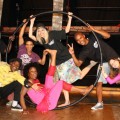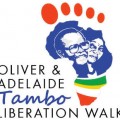Imagine….
‘If influential young leaders changed their lives in positive ways and encouraged their peers to do the same. Imagine what the African continent could look like 40 years on….’
That is what drives GOLD Peer Education Development Agency and their educators and why CEO, Susannah Farr believes that if you can turn negative peer pressure 360 degrees into positive pressure, it is the most powerful force for change.
Rose-tinted glasses? Not at all, over the past seven years GOLD has done just that. Not only reached thousands of young people in communities in South Africa, Botswana and Zambia, but the results and outcomes are measurable and phenomenal. It’s not just a feel good perception, GOLD’s auditing process and the systems they use to do this are of such a high standard that donors are able to have absolute proof of return of social investment.
Why peer education?
“Youth need to take Africa forward. We believe that South Africa can be strategic in making a difference in rest of Africa,” says Farr.
Unlike many of us, when she looks at a young person from a disadvantaged background, whether it’s a rebellious youth or merely an apathetic self-centred teenager, she sees enormous potential. Like a prospector, identifying a pretty ordinary piece of ore as potentially containing gold, she and the team work hard to extract it. “Less than 27% of disadvantaged youth have two parent families. Young people living in poverty and with no role models often have no self-esteem, are apathetic and have no ambition. If they are singled out and begin to see themselves as valuable, are given tools to run with a project, you unlock the most incredible potential and personal vision.
“Even if labelled lazy, rebellious or anti-authoritarian, when young people are given the opportunity to lead, something rises up within them. It is through these changes, at a personal level of peer educators (like improved academic performance, better communication in relationships and saying no to risk behaviour) that leads to positive change in the peer group and then the wider community,” she says.
It is not a perfect world so there are naturally some of the youth who are unable to rise above their circumstances and there are those who make mistakes on the way. “We expect attrition,” says Farr. “For example of the 30 that start out in their first year as peer educators, probably only 25 will be certificated. In the 2nd year there maybe only 20, the third year, 15. We don’t see it as a failure, in any institution there is a fall away – it’s natural. But there is still a win-win at each stage. They are role models and lead by example. That said, the way they react when they mess up is an example as well – the end result is pure gold. As Denis Waitley puts it, “There are no mistakes or failures, only lessons.”
Farr’s passion for the potential of Southern Africa’s youth is tangible. “Our youth is our greatest resource. Harnessing this raw power is not a quick process,” she says. “but the reward in the end is phenomenal.” Society is so quick to write off youth who are not showing obvious signs of success without taking into account their circumstances. “GOLD takes these youngsters and says: ‘You are special and you’ve got something to give back.’ And you know what? They blossom.”
How does it work?
The only way to create change in the peer group is to have personal change. Adolescent and young adult peer educators from hard hit communities, who demonstrate leadership potential, are equipped and supported by skilled out-of – school youth facilitators, over a three year period, to reach their peers, younger children and communities at large.
“Our selection process is well tested and includes volunteering and nomination with an interview process,” explains Farr. “Yes, there is an element of risk in not selecting traditional leaders but when that personal change takes place and they start getting excited about their skills and using them – the sphere of influence they have is huge. So our model includes choosing kids from different sub cultures – the academics, the musical, sporty, orphans. An orphan is best positioned to connect with and influence another orphan into making informed choices and develop health-enhancing and purpose driven social norms.”
Farr’s ability to see enormous potential and her generosity of spirit for a rebellious youth has its roots in her childhood. Her parents took in three Xhosa kids when their father died and their mother struggled to care for them “My parents saw their potential and gave them an opportunity” she says, “and it made an impression on me from an early age.” The tables turned however, when a benefactor paid for her to go to a private senior school after which she studied and started a youth programme in Cape Town and soon went to work in Egypt with orphans. “It was in those years that my passion for young people who don’t have opportunities began.” Farr returned to work with school going youth and do her masters thesis in Youth Peer Education.
GOLD is partnering with Zip Zap Circus School in GOLD’s first fund-raising event. Why Zip Zap? “We both invest in youngsters from disadvantaged backgrounds and turn them into stars.” There is rigorous training and huge discipline required to become a circus performer and these youth learn trust, commitment and team work. Zip Zap’s success is undeniable. They have dazzled audiences in Denmark, France, Switzerland, Germany, Australia and the United States. Some of the older children have become professionals in circuses, some are working in the film industry, but all of them are role models and contributing citizens who have given back to the youth by passing on their knowledge.
“The biggest lesson I have learnt, “says Farr, “is that a teenager with self-worth and purpose is a teenager saved. Which is why we wish governments and big business would partner with innovative social upliftment projects that invest long term. One of the problems in our country is a kind of ‘begging mindset.’ We don’t want hand-outs, we want partnerships.”
GOLD develops peer educators, facilitators and mentors ultimately increasing their opportunity to future opportunities. Peer leaders who will become positive role models, not only in schools but in the work place. “At the moment past peer educators either move into jobs, study or become a full time facilitator and get paid a stipend. Our aim is to be more intentional about future possibilities.
“We want them to move into municipalities, teaching, health care and fill key gaps needed to grow our economy with the skills we have taught them and start making a difference in the wider community. It seems crazy that there is such a disconnect between the huge number of unemployed youths and the shortage of policemen for example. Surely this is an opportunity to fix two problems? GOLD mentors leave us with such a vast array of skills they could fit into just about anywhere.”
Farr says GOLD’s vision of empowering youth peer leaders to become positive role models and agents of community change is bigger than any one person and the influence wide and long lasting. “Recently one of our past peer educators from our pilot project in 2001 came back to GOLD ten years after ‘graduating’ and wanted to help financially, saying, “I am what I am because of what I got…”
“My dream is for us to be in every community by 2020.”
For more information on GOLD go to www.goldpe.org.za
The GOLD/Zip Zap Circus fundraising event is taking place on Wednesday, December 14. Tickets cost R150and are available from GOLD. Call Kim on 0216855038 for details or email kimpryce @ goldpe.org.za.
